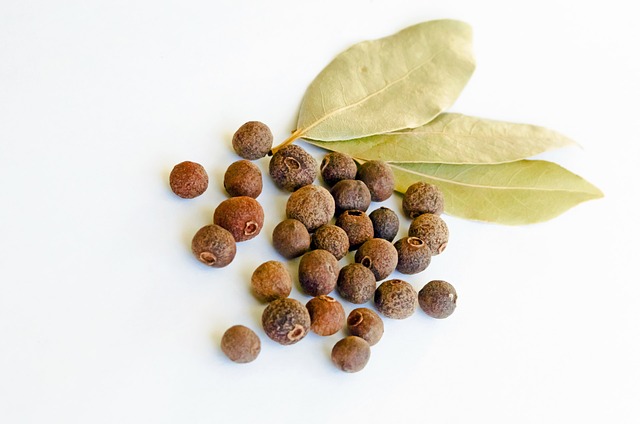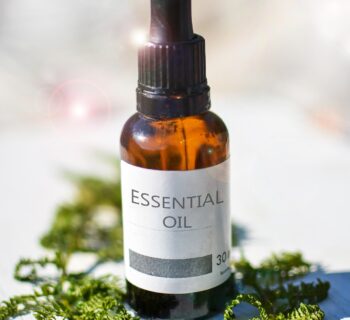 Essential oils are extracts, in highly concentrated form, which can be made from virtually any plant variety. These oils are used for many purposes, but are particularly prized for their medicinal properties. Used for homeopathic treatment and aromatherapy, stong extracts of aromatic plants have long been a therapeutic ingredient in a variety of concoctions, created to soothe both the body and the spirit. Common uses for essential oils are as ingredients in cosmetics, cleansers and perfumes.
Essential oils are extracts, in highly concentrated form, which can be made from virtually any plant variety. These oils are used for many purposes, but are particularly prized for their medicinal properties. Used for homeopathic treatment and aromatherapy, stong extracts of aromatic plants have long been a therapeutic ingredient in a variety of concoctions, created to soothe both the body and the spirit. Common uses for essential oils are as ingredients in cosmetics, cleansers and perfumes.
Although there are, at least hundreds, and probably thousands of essential oils available, the five oils showcased in this article could be called the most essential of all essential oils. These are five of the most popular oils, commonly used in everything from shampoos to over-the-counter health aides. Although you may find some disagreement among the most popular and frequently used oils, there’s no debate that the five mentioned below are among the best sellers and most widely utilized.
Lavender Oil is probably the most frequently used essential oil and the most widely available. Lavender is a popular and easy to grow plant, that is cultivated in commercial and home gardens, worldwide. Lavender oil is inexpensive and valued for its pleasant, clean and calming aroma.
Lavender oil is one of the few essential oils that can be applied directly to the skin and is often used in this manner for antibacterial and antiseptic applications. Lavender oil is stimulative, and can aide in the healing process, by increasing blood flow to injured areas, where it also provides mild analgesic effects. Lavender’s pain easing properties make it particularly effective for burns and insect stings. Lavender oil can be used for massage and aromatherapy, where it has the ability to ease tension and anxiety, in addition to improving circulatory and respiratory issues. It is sometimes used in cooking and can function as a digestive tonic. The scent of lavender is popular in air fresheners, candles, bathing preperations and skin lubricants.
Eucalyptus oil comes from the leaves of the eucalyptus tree, grown worldwide in regions experiencing plentiful rainfall. The strong odor of eucalyptus makes it ideal for aromatherapeutic use, where it clears respiratory passages, improves circulation and invigotates the mind and body.
Strongly antiseptic properties, make eucalyptus oil ideal for repelling insects and rapidly cleansing the air. As an anti-inflammatory, eucalyptus can be used to ease sore muscles, strains and sprains, or the pain of arthiritis. Other medicinal uses for eucalyptus are to relieve itch, swelling and infection.
Lemon oil is extracted from the natural oils in the skin of the lemon fruit. The revitalizing scent of lemon oil makes it particularly desired as a freshening agent in many household products. Soaps, cleansers, detergents and polishing products are often scented with lemon oil. Many cosmetics and preparations for use on the skin, nails and hair also use lemon oil.
Lemon oil is widely thought to be an antidepressant, and is often combined with other flavors in cough, sore throat and cold remedies. Lemon oil increases a sense of well-being, and posesses antihistimine, antiseptic and antiviral properties.
Lemon essential oil is used as a flavoring in desserts. It is also a popular additive to home remedies for detoxification of the digestive tract and skin.
Tea Tree Oil extracted from the various parts of the Melaleuca plant or Tea Tree is a popular cosmetic ingredient, and is used in a multitude of cosmetic preparations, including shampoos, antiseptics, insect repellents and acne preparations.
Care should be taken when using tea tree oil, as it is a strong stimulant and can be absorbed into the skin. Tea tree oil stimulates circulation and is effective against fungus and bacterial growth. Its stimulative and antiseptic properties make it ideal for cleansing and first aide use. Gum disease and athlete’s foot can also be treated with tea tree oil.
Peppermint oil is stimulating and energizing. Used in sports medicine, peppermint oil creates a sensation of cooling or warming, that is also ideal for clearing a head or chest cold. Ointments to stimulate circulation often incorporate peppermint oil, which also decreases inflammation.
Peppermint oil is well-known as a digestive tonic to soothe an upset stomach, whether it is caused by over indulgence, disease or motion sickness. Cough drops and breath fresheners use peppermint oil for its freshening, expectorant and antiseptic properties.
Peppermint oil has a popular flavoring, and is widely used in the manufacture of candy, confections and baked goods.
When choosing essential oils to use for home remedies and household purposes, these five oils are low cost and have many benefits. They have low toxicity and can be easily incorporated into many useful products for everyday use. It’s no wonder that these five versatile essential oils make the top of the list, for popularity and utility.








